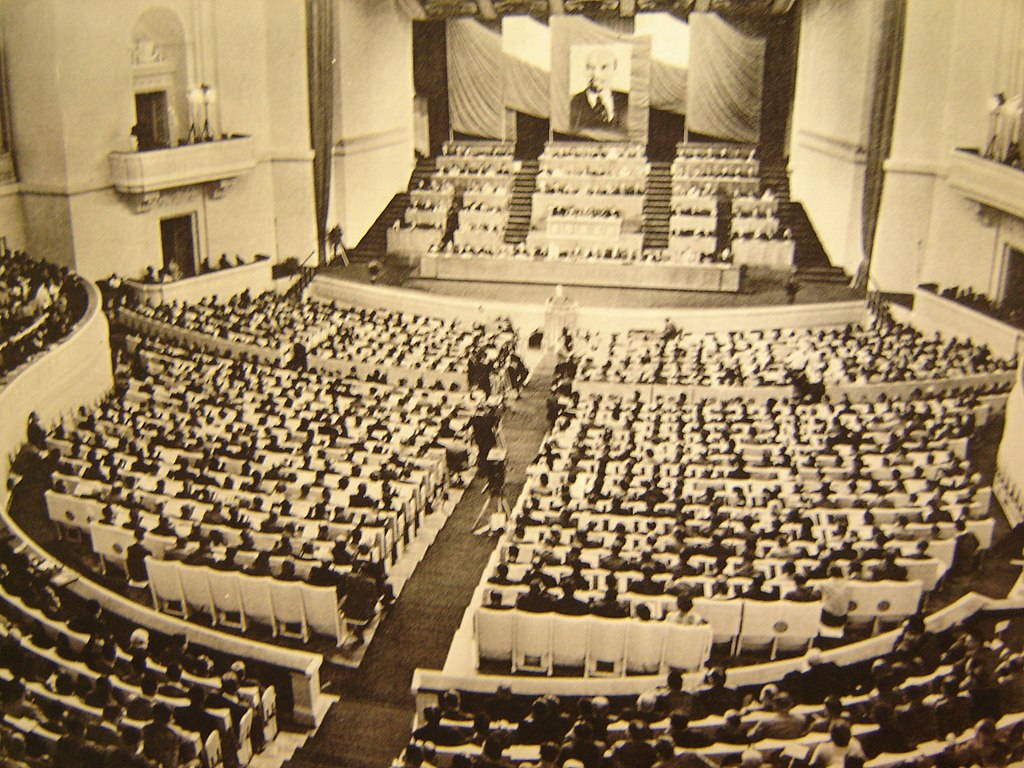On January 27th, 1990, the Polish United Workers' Party ("Polska Zjednoczona Partia Robotnicza", or "PZPR") was dissolved at its party congress. Offshoots of the PZPR have included the Social Democracy of the Republic of Poland party and the Polish Social Democratic Union. The PZPR was the first domino to fall in a wave of democratization across Eastern Europe.
The PZPR, a Marxist-Leninist communist party, had ruled Poland since 1948. Although the PZPR had been in power for more than half a century, Solidarity, an anti-communist independent trade union, had grown in strength since the 1980s. On June 4th, 1989, Poland held elections for a portion of parliamentary seats; 35% of seats were freely elected by the people. In the end, all freely-elected seats except one were won by Solidarity (with the exception won by an independent candidate). After the PZPR was defeated in the parliamentary elections, Solidarity gained power, and one of their leaders, Tadeusz Mazowiecki, became prime minister. In so doing, Mazowiecki became the first non-communist Polish government leader since World War II, and established a new government based on Solidarity.
References: [報導者("The Reporter")(Chinese)] (https://www.twreporter.org/a/transitionaljustice-series-poland); [美國之音("Voice of America")(Chinese)] (https://www.voacantonese.com/a/poland-round-table-meeting-communists-20190207/4776807.html); [中國共產黨歷史網 ("CCP History Network")(Chinese)] (http://cpc.people.com.cn/BIG5/218984/218998/14818639.html); [中共中央黨史和文獻研究院("Party History and Literary Research Institute of the CCP Central Committee")(Chinese)] (http://www.dswxyjy.org.cn/BIG5/n1/2019/0617/c427165-31161626.html)
